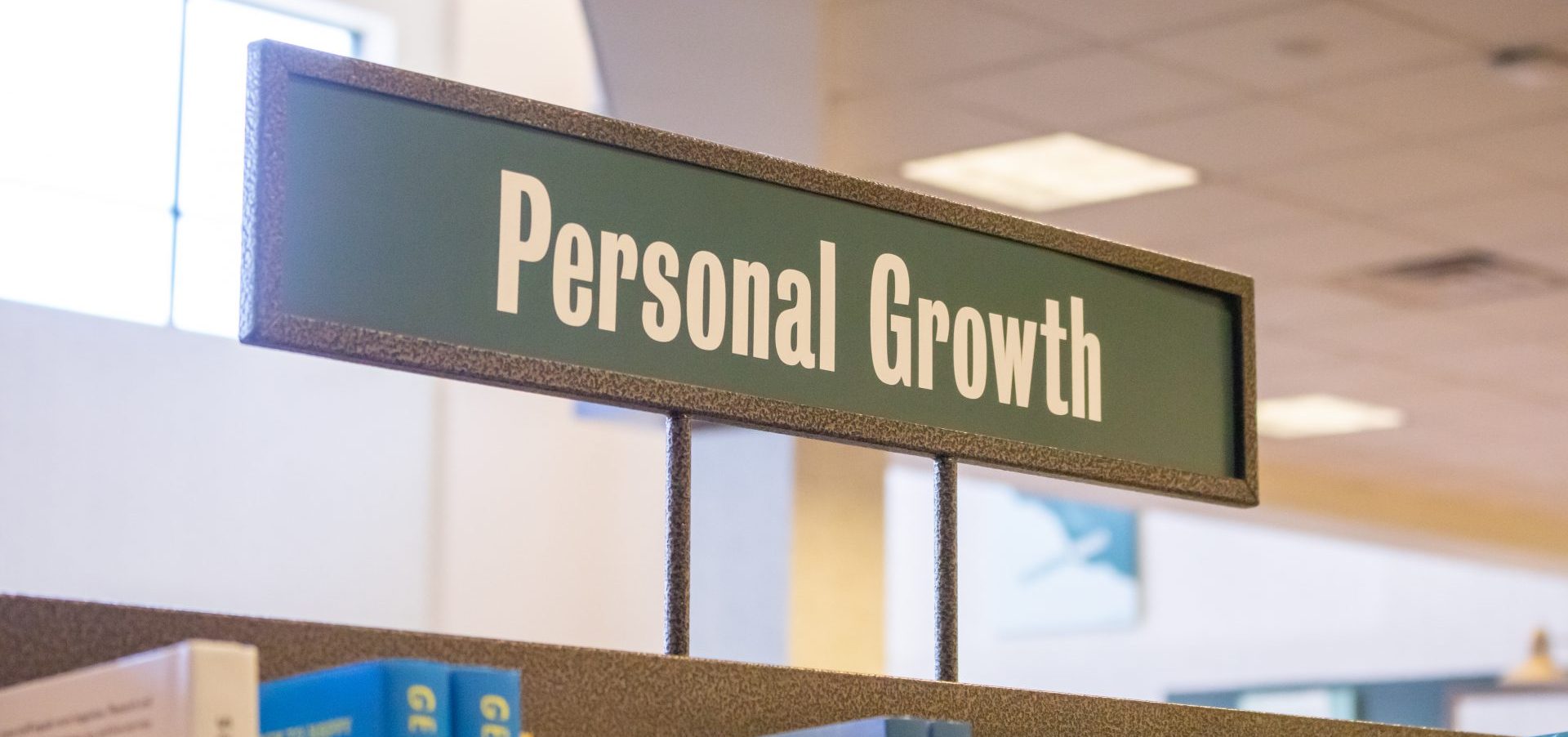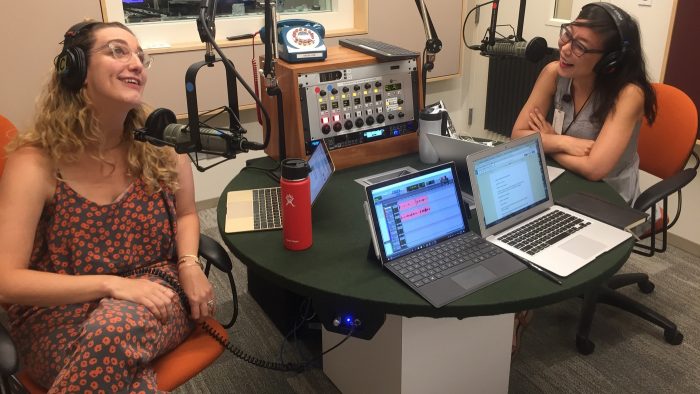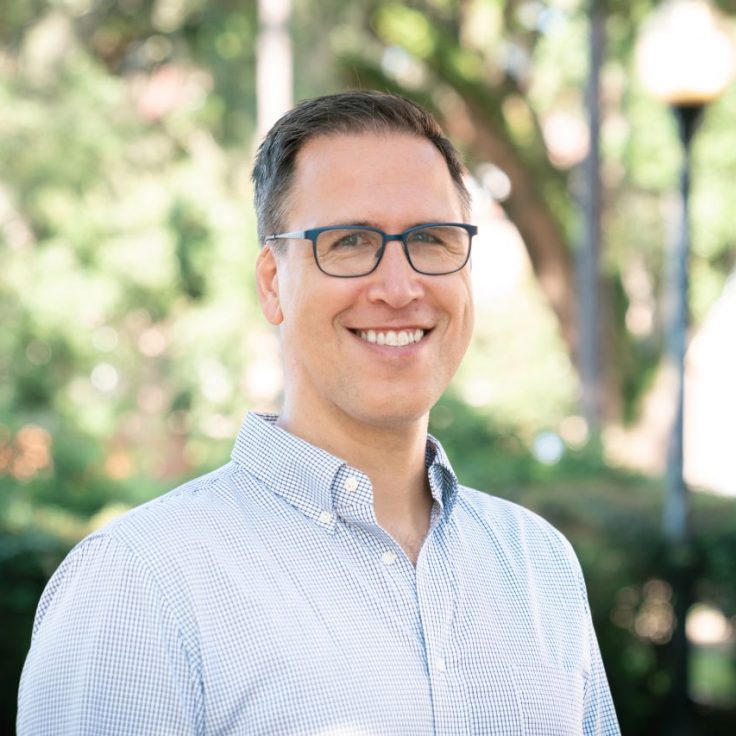
The History of Self-Help
Associate professor Trysh Travis offers a new perspective on the self-help movement through appearances on a popular podcast
TRYSH TRAVIS, associate professor at the Center for Gender, Sexualities and Women’s Studies Research, ventured into the world of podcasting in 2020 to provide an expert opinion on the popular show “By the Book.”
Previously recommended by NPR and The New York Times, “By the Book” is self-described as “half reality show, half self-help podcast, and one wild social experiment.” The podcast tries to determine if any of the tips found in these publications are worth following, with each episode following hosts Jolenta Greenberg and Kristen Meinzer as they select a new book and adhere to its teachings for two weeks. They then follow up with an “epilogue” episode, discussing their experiences living by the material.
Travis appeared as a guest throughout the show’s winter 2020 season that took a historical approach to the world of self-help, with each episode examining a single bestseller from a particular decade from the 1930s to the present day. The hosts turned to Travis for more context on the time periods discussed.
The eight-episode season started off with 1936’s How to Win Friends and Influence People by Dale Carnegie and ended with the 2010 release The Gifts of Imperfection by Brené Brown. Travis appeared in an epilogue episode for each book to discuss the social, political and, more often than not, economic factors that influenced American culture at the time of the books’ release.

Her message to “By the Book” fans is simple: Think about the ways that self-help books are influenced by culture, and how much that can change over time.
As an expert in the history of media and “mental hygiene” movements centered on mental health and wellness, Travis provided a unique perspective on the self-help books covered in this series. She has found success publishing work on the history of addiction recovery and therapy methods in the United States, despite lacking a formal background in psychology. Travis’ focus is instead on the history of these practices, rather than the medical minutiae. Her work cannot easily be categorized into one academic discipline, allowing her to take advantage of a variety of opportunities.
Travis said she believes it is important to “do work that falls through the cracks of other disciplinary fields but tells a really important story that people in lots of different areas need to know.”
At UF, Travis reaches a wide range of students through her interdisciplinary courses, including those in the new UF Quest curriculum, which examines difficult to answer questions about the human condition. She places great emphasis on “meeting students where they’re at,” rather than sticking to the conventions of a single area of study or method of instruction. She likens this to her ability to reach the By the Book audience.
Travis’ involvement with the podcast began after “By the Book” discovered her work on self-help in a magazine dedicated to American history. Oftentimes incentives in higher education encourage academics to publish work that is accessible for only an expert audience, limiting its potential impact.

Recognizing this issue, Travis makes it a point to publish articles that are accessible to interested audiences outside of academia in addition to works in scholarly journals. Travis also co-founded Points, the official blog of the Alcohol and Drugs History Society, a project where scholars are given the opportunity to publish public-facing work on alcohol and drugs from a wide range of disciplines, which, combined with her experience as a guest on “By the Book,” has allowed her to discover a new and enthusiastic audience.
With thousands of listeners and a lively community of fans on Facebook, the show is well established in the podcasting community. Though many listeners are self-help enthusiasts rather than history buffs, Travis’ role on this season of the show has encouraged listeners to pursue further research into topics that resonated with them.
Her message to “By the Book” fans is simple: Think about the ways that self-help books are influenced by culture, and how much culture can change over time. She emphasizes the role of consumer culture in self-help books, and advises readers to have a healthy dose of skepticism when engaging in “self-care.” She encourages self-help enthusiasts to engage critically with the self-help books they consume, much like “By the Book” does.
“There is an assumption that the self that seeks a self-help book is a self that believes it can be changed,” Travis said. “We should always be asking ourselves what’s behind that belief: Who is it that’s telling you that you need to improve? More importantly, how are they benefitting from you believing that?”
Travis appeared in eight “epilogue” episodes as well as one bonus episode of “By the Book” season six. You can listen on Stitcher or other podcast streaming platforms.


